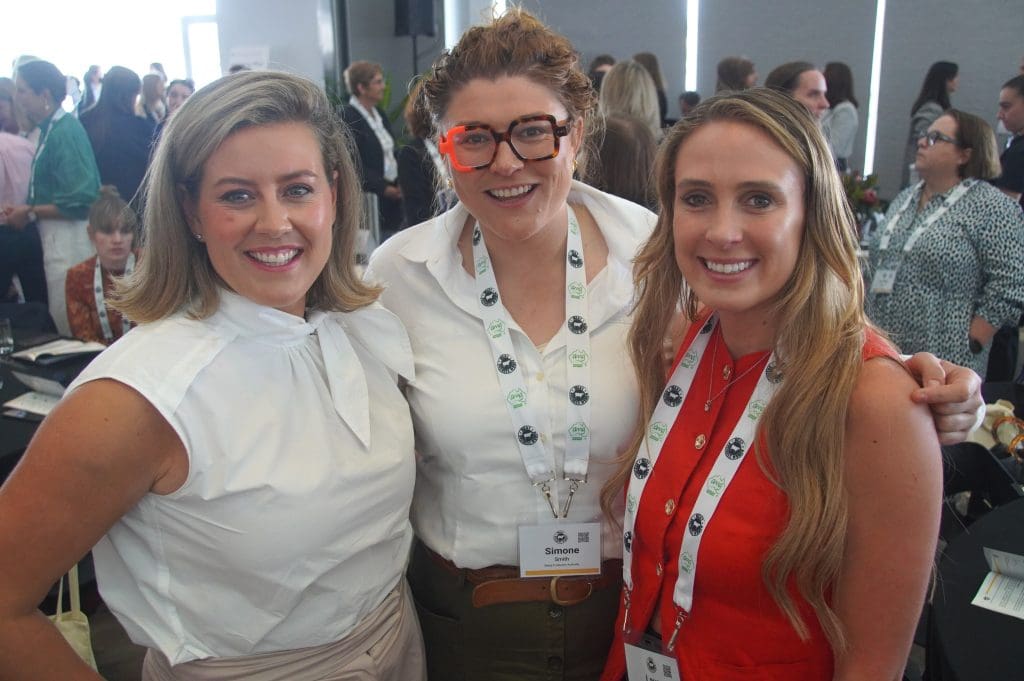
Meat Business Women’s Community engagement manager Alex Harvey, left, with delegates Simone Smith, Sheep Producers Australia, and Laura Durrant, Coles’ lead of home brands
A LIVELY crowd of almost 250 industry stakeholders gathered in Brisbane this morning for the 2025 Meat Business Women conference, the primary objective of which is to empower women to make their mark on the industry.
The diverse audience – including a good scattering of menfolk – ranged from recent graduates to CEOs and business owners across the processing, supermarket retailing, value adding and branded beef marketing streams.
Opening the conference was Queensland primary Industries minister Tony Perrett, who said the red meat industry needed more female employees if it was to fulfil its growth potential, with his state aiming for agricultural production worth $30 billion by 2030.
The Meat Business Women movement, founded in the UK in 2015, has been a colossal success story in Australia, growing from a group of 30 to 600 members this year.
Key themes addressed at the conference included retail and food service trends, mentorship, gender inclusion, managing workforce diversity and the power of networking.
MBW’s “One to Watch” Award was due to be presented this afternoon, from a field of six impressive young finalists.
Food Business Charter
A key focus for the organisation this year is the Food Business Charter, a bold global commitment to reach 40pc female representation across the food value chain by 2035. Developed in collaboration with 38 early signatories from across manufacturing, retail, and foodservice, the Charter marks a watershed moment for gender balance in the sector.
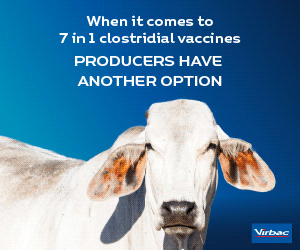 Signatories to the Charter commit to six practical steps to support organisations in accelerating progress on gender balance and inclusion. To support this commitment, the Charter is accompanied by an Action Planning Toolkit, developed in collaboration with Diversity & Inclusion experts, providing organisations with practical strategies to achieve the Charter’s ambitions.
Signatories to the Charter commit to six practical steps to support organisations in accelerating progress on gender balance and inclusion. To support this commitment, the Charter is accompanied by an Action Planning Toolkit, developed in collaboration with Diversity & Inclusion experts, providing organisations with practical strategies to achieve the Charter’s ambitions.
The Food Business Charter sends a strong global signal that food industry leaders are ready to act, providing a clear framework and practical tools to help businesses address the gender gap.
Meat Business Women Australia chair Stacey McKenna said the Food Business Charter was a game-changer for the meat industry, setting a new standard for gender equality and workplace inclusivity.
“Rather than just talking about change, we’ve worked alongside senior leaders to create a clear, practical plan that will drive real progress,” she said.
- More conference reports in coming days.
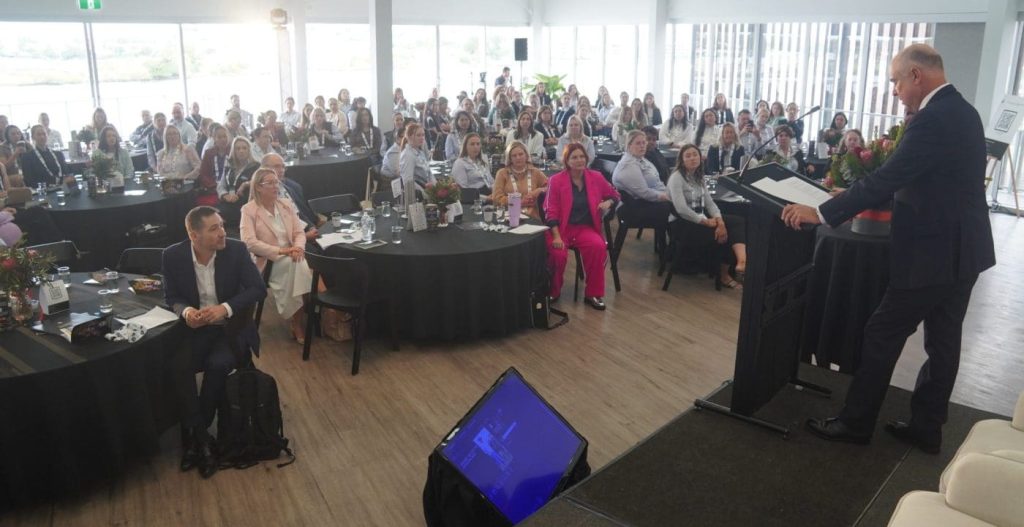
Queensland Primary Industries minister Tony Perrett addresses this morning’s MBW audience
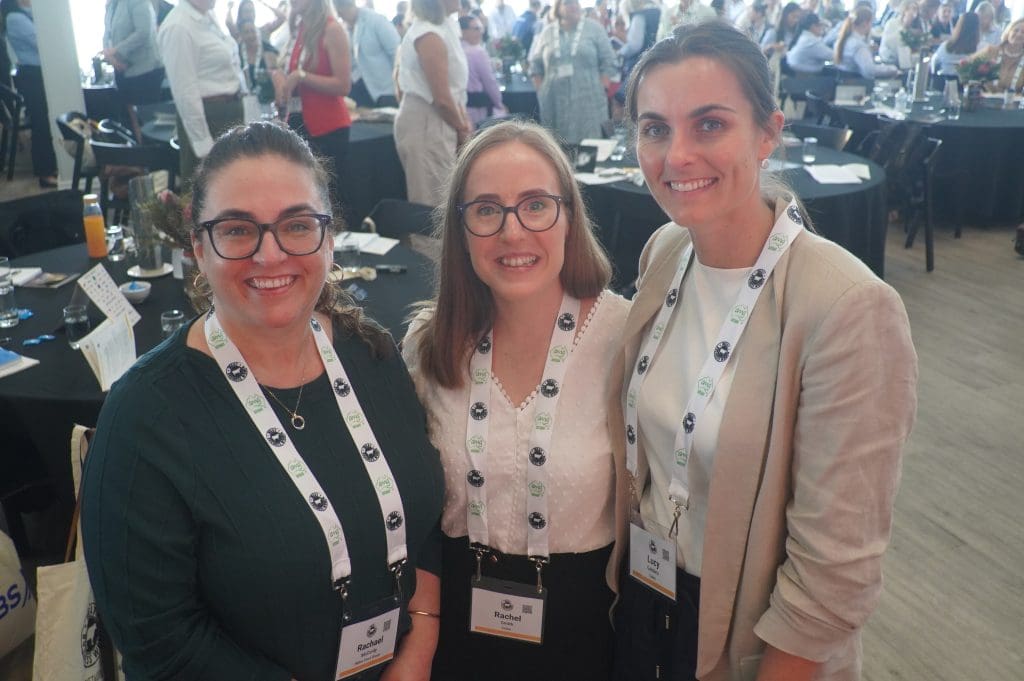
Part of the Coles contingent in Brisbane included Lucy Gubbins, right, and Rachel Smith, centre, with Hilton Food Group’s Rachael McCurdy
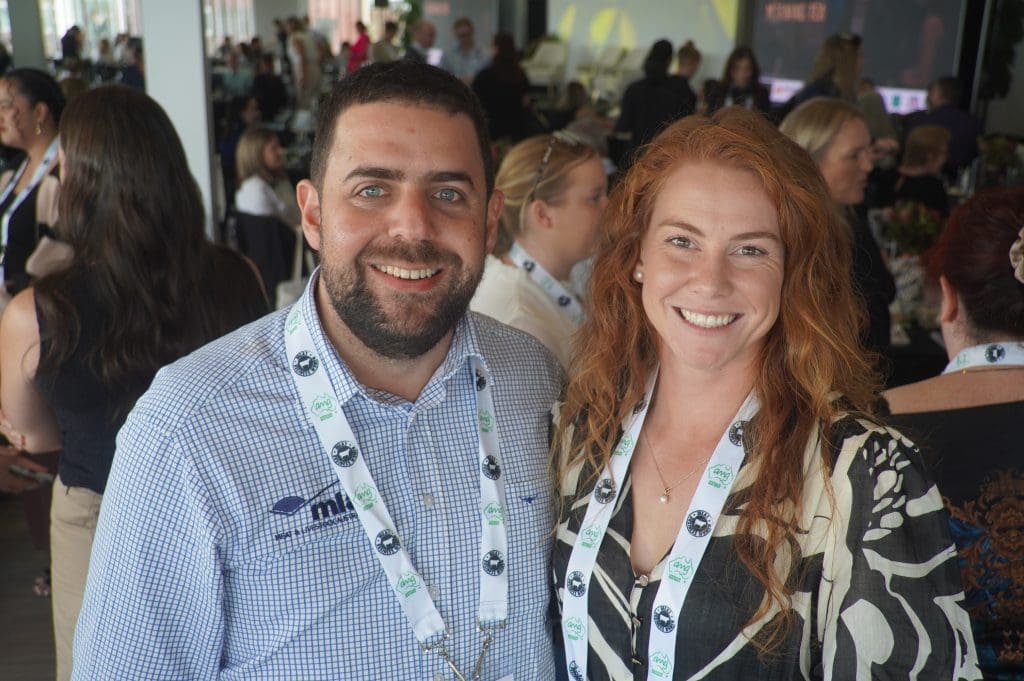
Thorn amongst the roses: Jacob Betros, MLA’s manager of beef sustainability with Lauren Smith, Australian Meat Processor Corporation
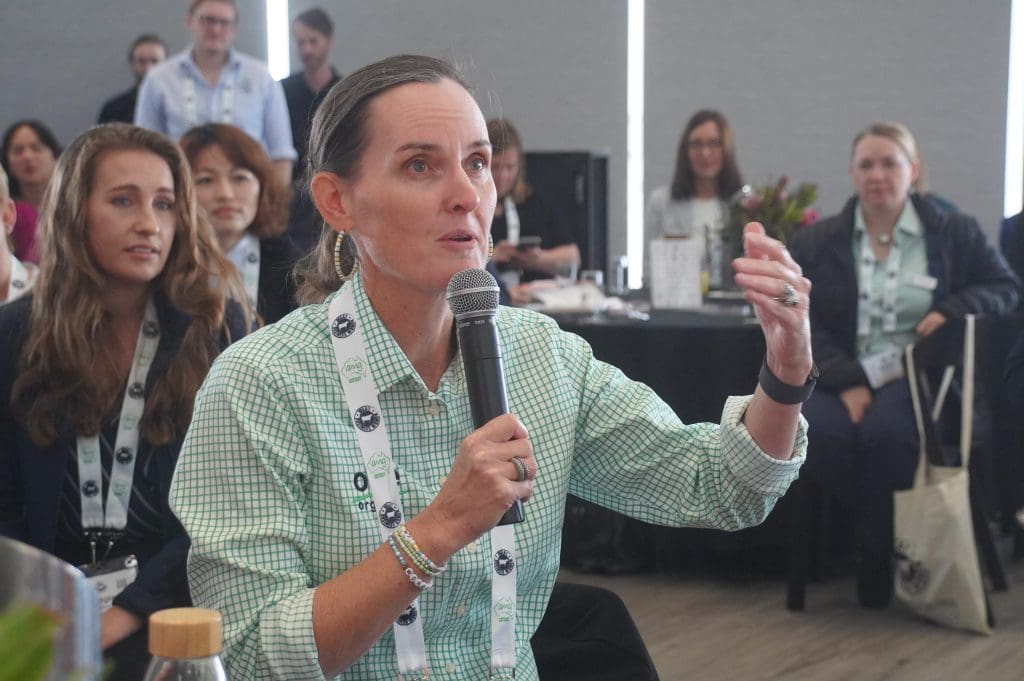
Organic beef producer and marketer Dalene Wray from OBE, makes a point during this morning’s Q&A session
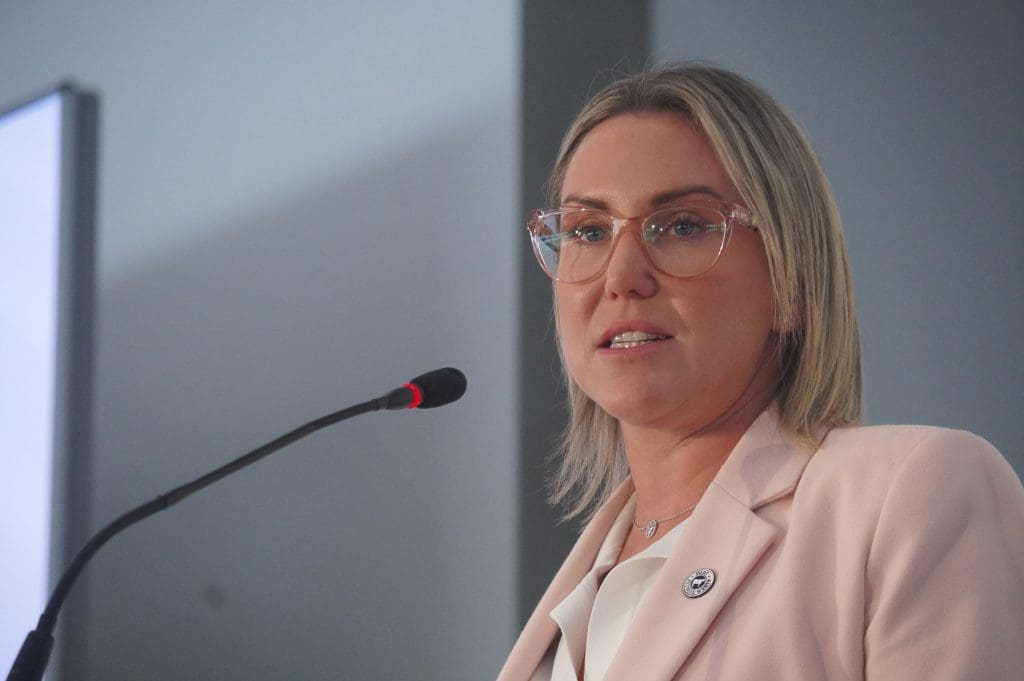
Meat Business Women chair Stacey Mckenna from Midfield Meats in Victoria addresses the gathering
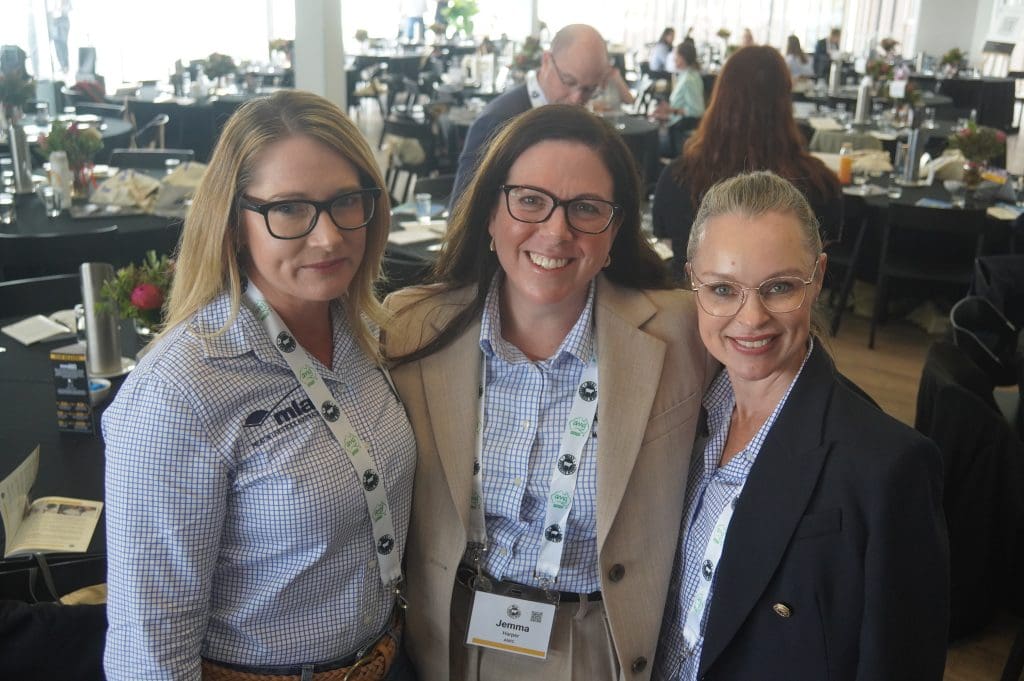
Alana McEwan from MLA, left, with Australian Meat Industry Council’s Jemma Harper and Kathy Hawley from MLA.

Panel session on mentoring during this morning’s MBW program
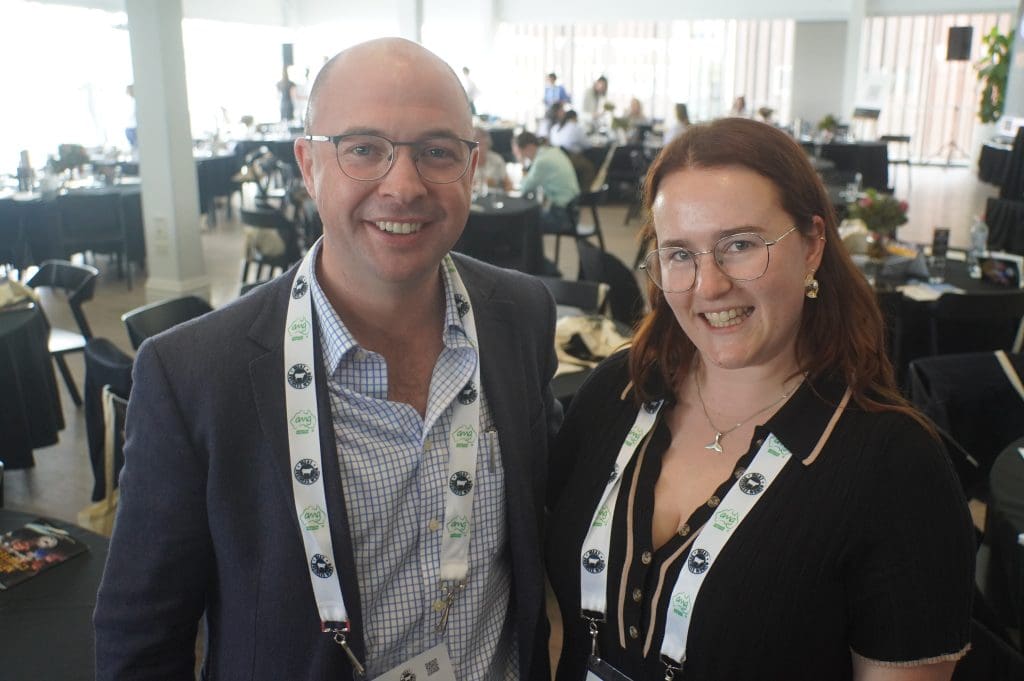
AMIC chief executive Tim Ryan with MLA’s national retail account manager Phoebe Johnson
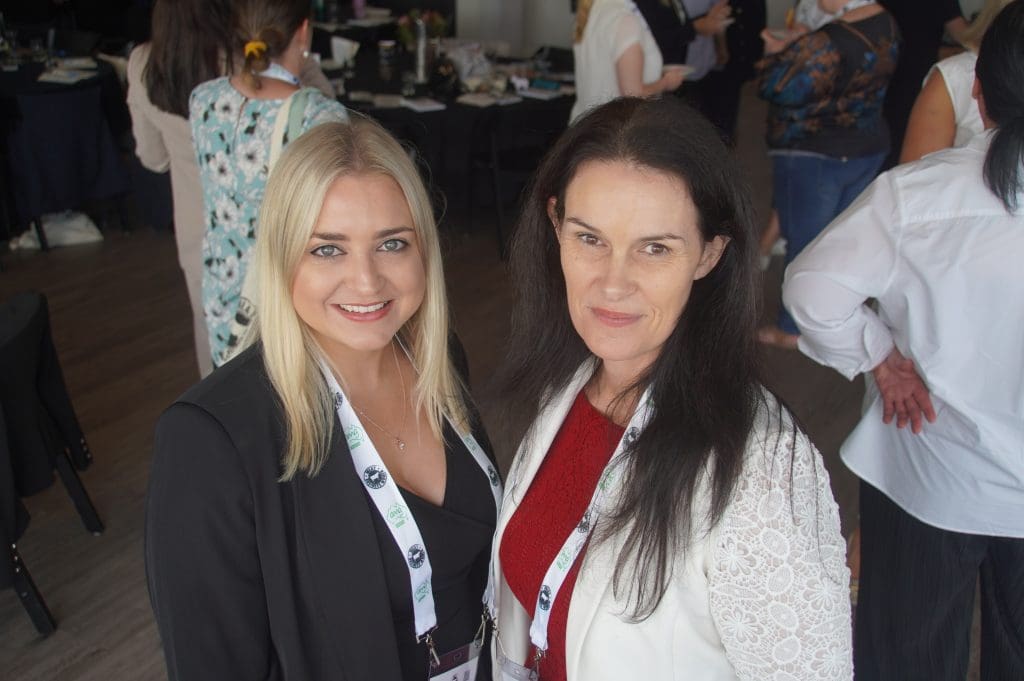
Representing the Integrity Systems Company were Elizabeth Bradley, left, and Natasha Tere
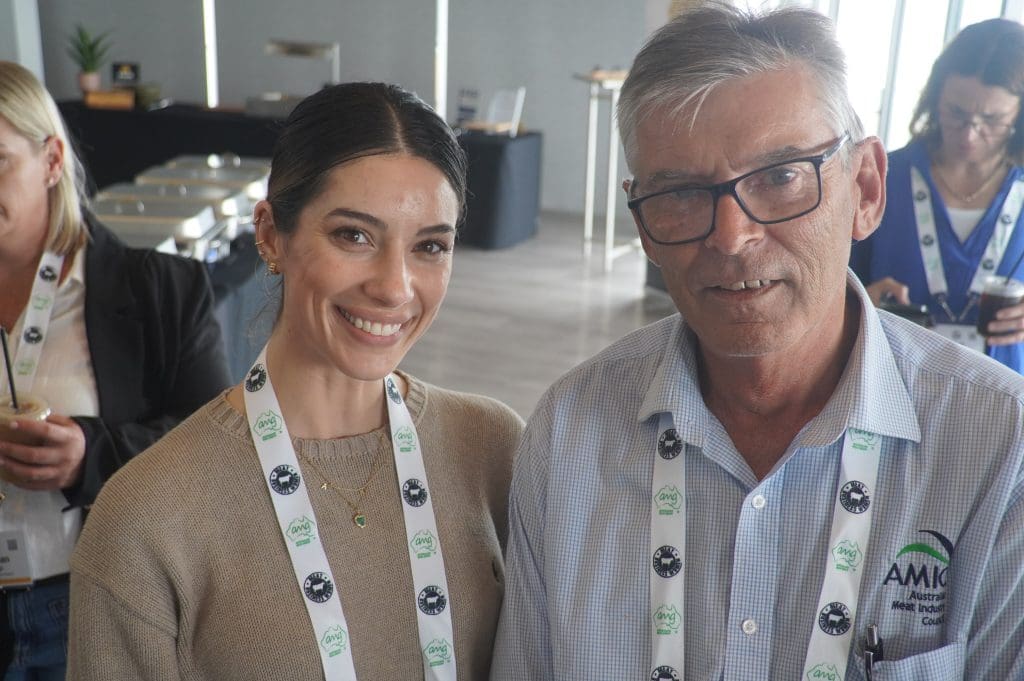
Newly appointed AMIC comms manager Hayley Magness with Tony Morgan, AMIC’s Queensland retail manager

HAVE YOUR SAY